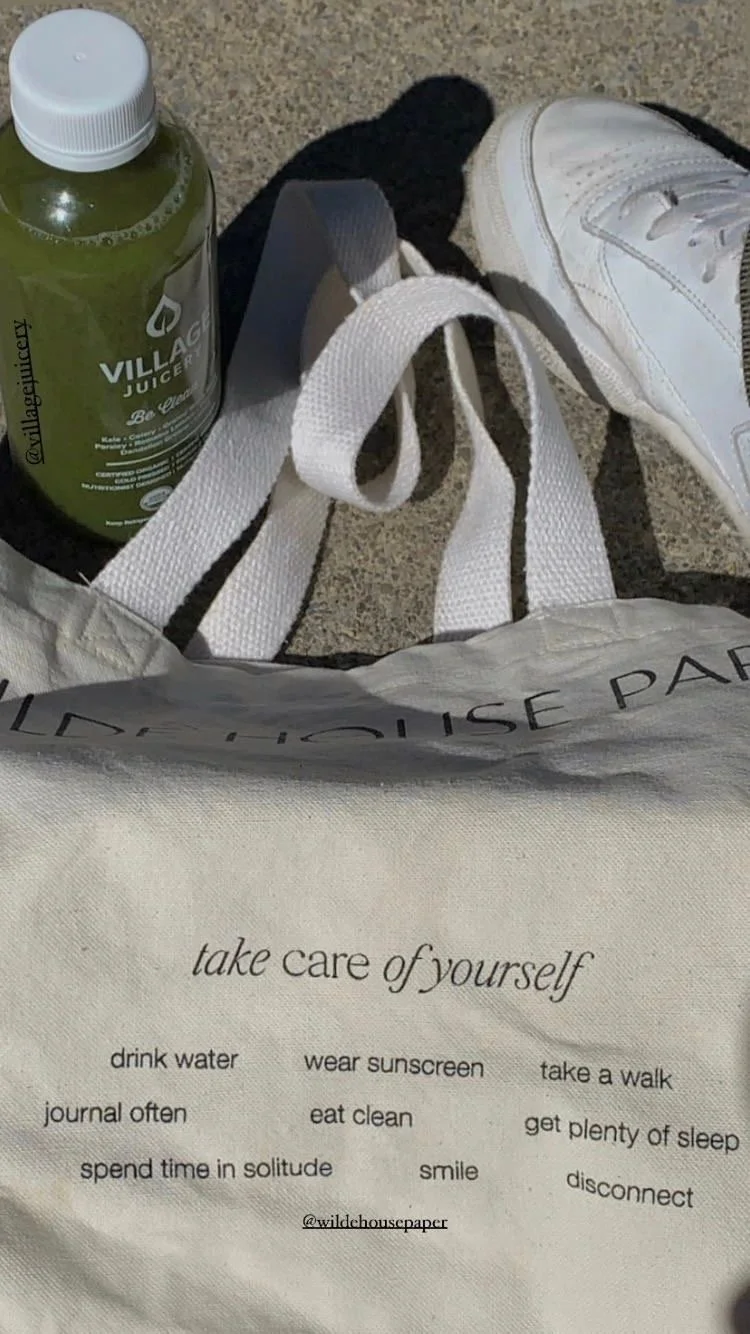Amid life's chaos and demands, it's easy to feel overwhelmed, drained, and disconnected from our inner selves. The signs are there—the fatigue that lingers, a mind cluttered with racing thoughts, and a spirit that feels weighed down; it's during these moments we realize the need for a reset—a detox that goes beyond just the physical body.
If you’re feeling off-track, weighed down by the fast pace of life, or just craving a fresh start, you’re in the right place. Let’s talk about detoxing and renewing yourself. This isn’t just about ditching junk food or doing a social media cleanse. It’s about giving your entire self a reboot from a holistic approach—encompassing the mind, body, and spirit.
Hello Lovely Living is dedicated to guiding you on a journey of self-discovery and transformation, helping you realign with your truest power and essence. As a whole, we understand the importance of rejuvenating all parts of the human experience.
In this article, we’ll explore mindful and healthy practices, delve into self-care rituals, and discover various paths to unlock your awakening and personal freedom. Together, we’ll embark on a holistic detox journey to cleanse your mind, nurture your body, and revitalize your spirit.
It's time to embrace a fresh start and begin your transformational process towards a healthier, more aligned version of yourself.
No. 1
The Whole Deal With Detoxing
Alright, detoxing. It’s a buzzword, sure, but it’s also a pretty neat concept. Think of it as giving your body a much-needed vacation. And this vacation is all-inclusive: we’re talking food, environment, and even the mental chatter.
It’s not about depriving yourself or following extreme measures. Instead, it’s about filling your life with more of what does you good and less of what doesn’t. Let’s make this part about celebrating your body and mind by treating them to the care they deserve.
No. 2
Your Plate Is Your Palette
Imagine your plate as a canvas. What you put on it colors every part of your life. We’re aiming for a rainbow here—fruits, veggies, lean proteins, whole grains, and those good fats. These foods are like your body’s closest friends; they help fix things and keep everything running smoothly.
And don’t forget about water. Imagine it as the magic remedy that washes away the bad stuff. Try kicking off your day with warm lemon water. It’s a gentle nudge to your digestion and liver saying, “Hey, let’s do this.”
No. 3
Make Your Space A Safe Space
Our spaces are like big sponges; they soak up everything. So, let’s keep it clean by avoiding and eliminating any harmful toxins that are introduced into the home. Swap out those harsh cleaners for something a bit more earth-friendly.
And how about saying “see ya” to unnecessary plastic? Swapping them out for glass containers instead is a move that makes the world of a difference to your health. Many plastics contain harmful chemicals such as BPA and phthalates that can leach into our food and drinks, impacting our well-being over time.
Adding air-purifying plants to your home can help you further combat toxins that get trapped in dust and particles in the air. They are the perfect addition to ensure that you have a little army constantly filtering them out. They cleanse your environment while also enhancing overall well-being by providing a daily dose of nature, indoors.
Here are a few air-purifying plant options:
1. Snake Plant (Sansevieria) - Known for its resilience and ability to thrive in low light conditions, the Snake Plant is a top choice for removing toxins like formaldehyde and benzene from the air.
2. Peace Lily (Spathiphyllum) - With its elegant white blooms and lush green leaves, the Peace Lily not only adds beauty to your space but also helps eliminate harmful substances such as ammonia and xylene.
3. Spider Plant (Chlorophytum comosum) - Easy to care for and safe for pets, the Spider Plant is excellent at removing carbon monoxide and formaldehyde, making it a must-have for any home.
No. 4
Let’s Get Moving
Now, onto moving that amazing body of yours. Exercise isn’t just about breaking a sweat; it’s a detox dance for your cells. Find something that makes you feel good and stick with it.
Workout classes are a fantastic way to mix it up and keep things spicy. You’ll meet new people, learn new moves, and, believe it or not, have a blast while doing it.
No. 5
Mind Matters
Detoxing the mind is an essential part of mindful living. Our thoughts can either lift us or weigh us down. So, let’s aim for the sky, shall we? Taking a few moments each day to simply breathe and be present can significantly reduce feelings of anxiety and overwhelm.
This isn’t about emptying your mind; it’s about learning to observe your thoughts like clouds passing in the sky, without getting swept away by them.
When you observe your thoughts, you may also want to look at facing the negatives in your life, or those things causing you harm. Whether that’s substance abuse or toxic relationships, to detox your mind successfully, you should address all aspects of your life that are causing you distress.
No. 6
Mindfulness And Meditation
These aren’t just trendy words that people just throw around; they’re tools. Tools that help you clear out the mental clutter and stress. Even if it’s just for a few minutes each day, giving your brain a break can work wonders.
And you know what? You don’t need any fancy equipment or a silent retreat in the mountains; your comfy chair and a few quiet moments are all it takes. It’s about finding that inner calm amidst the chaos, a safe space within.
No. 7
Time For A Tech Detox
Ever feel like you’re too plugged in? Setting aside time for a digital detox can help you recharge. Maybe declare the dinner table a phone-free zone, or dedicate an hour before bed to unwind without screens. It’s amazing how much more connected you’ll feel to the real world when you take a step back from the virtual one.
And don’t worry about what happens when you’re away; the digital world will still be there in the morning when you get back, but your peace of mind is priceless.
No. 8
Surround Yourself With Sunshine
By sunshine, we mean people who make you feel warm and fuzzy inside. The vibes we get from those around us can largely shape our outlook. So, choose positive and supportive environments.
Remember, it’s okay to set boundaries with those who drain your energy. Formulating a circle of friends and family who respect and uplift you can transform your everyday experience and enhance your overall well-being.
No. 9
Rest And Recharge
Never underestimate the power of a good night’s sleep. It’s like hitting the reset button for your body and mind. Sleep is when our bodies do most of their healing, digesting not just food, but also the day’s experiences.
Ensuring you get enough rest is like giving your body a nightly tune-up, ensuring you’re ready to take on whatever tomorrow brings.
No. 10
Put Together A Good Nighttime Routine
Create a pre-sleep ritual that feels like a warm hug each night before bed. Dim the lights, cozy up with a book, take a relaxing bath, or just block out the world while doing your skincare routine. It’s all about telling your body, “Hey, it’s time to wind down.”
Add some soothing music or a few drops of lavender oil to your pillow for an extra layer of relaxation. This isn’t just about sleeping well; it’s about ending your day with purpose, gratitude, and peace.
No. 11
The Big Picture
This journey we’re talking about? It’s a marathon, not a sprint. Detoxing and renewing is all about the long game—no quick fixes here. Listen to your body, honor your feelings, and take it one step at a time. This isn’t about being perfect; it’s about making progress, however small it may seem.
Remember, it’s all connected. The food you eat, the air you breathe, the way you move, the thoughts you think, and the rest you receive—each piece fits together to paint the bigger picture of your health.
Takeaways
So, as we wrap this up, think of this as the beginning of something awesome. You’re on the brink of refreshing your life, embracing a healthier, happier you. It’s about nourishing yourself, inside and out, and enjoying the journey every step of the way.
Remember that revitalizing your life through detox and renewal is a deeply personal adventure. Whether you’re tweaking your diet, decluttering your space, practicing mindfulness, or simply experiencing more of the things that make you feel good.
Each step you take is a step toward a more vibrant you. Celebrate the small victories, be kind to yourself, and keep pushing forward. We are rooting for your daily self-awareness and transformation.
LOOKING FOR WELLNESS RESOURCES?
Are you looking to enhance your wellness routine? Explore our wellness partners who offer a wide range of resources to support your journey toward holistic living and well-being. From mindful living practices to self-care techniques, our partners are here to help you elevate your wellness routine to support you on your journey of health and vitality.































































































